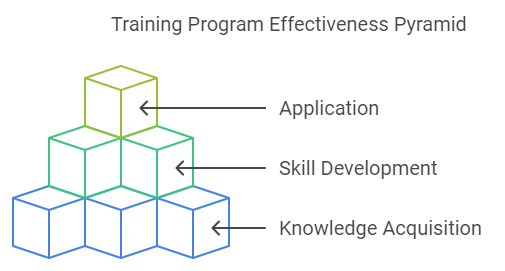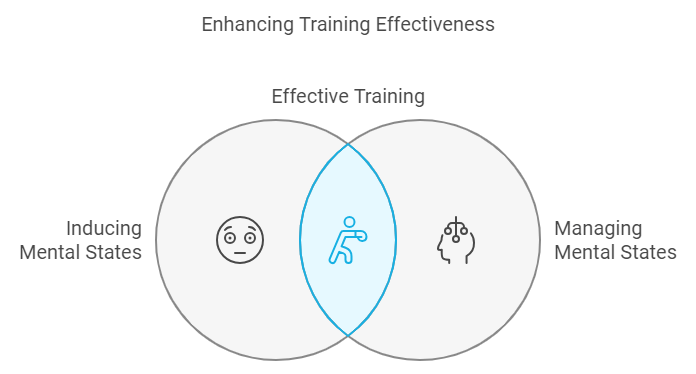Introduction
Becoming a trainer is in fashion these days. Almost everyone who thinks he/she can speak well can become a trainer. But is speaking well the only skill required to become an effective trainer. In fact how do we even measure whether or not are you an effective trainer. Let us answer these questions and some more in this post.
Purpose of a Training Program
The purpose of any training program is to create a positive shift in the behaviour of the participants. By positive I mean a shift that helps the participant to move closer to a desired objective.
 This holds true for almost all training programs be it technical or soft skills. No matter how well the participants know about these skills consciously, the skills by themselves hold no value. The value of a skill comes from the participants ability to apply it at the right time.
This holds true for almost all training programs be it technical or soft skills. No matter how well the participants know about these skills consciously, the skills by themselves hold no value. The value of a skill comes from the participants ability to apply it at the right time.
It is because of this reason that most training programs fail! Most training programs focus on imparting new skills to participants. This is done by using one of the following approaches:
- Providing participants with additional knowledge about skills.
- Demonstrating how these skills can be developed.
- Making participants practice some of the techniques to develop these skills.
The primary assumption with the first and second approach is that if the participants know about the skills, they will be able to develop these skills.
While the assumption in case of the third approach is that if participants can develop the skills in the program, they can apply the same when needed.
Speakers who are not effective trainers fail to recognise:
- Knowing the skills ≠ equal to developing these skills.
- Developing skills in a program ≠ having the ability to apply these skills when needed.
For an effective trainer is it important to Remember:
- To enhance knowledge, it is not enough to just provide information & show demonstration. It is important to ensure that the participants are in the right mental state to be able to understand this information.
- Similarly for developing skills, it isn’t sufficient to make participants practice those skills. It is equally important to help them get into the appropriate mental state that is conducive to developing skills.
- Finally in order to ensure that the participants are able to apply these skills in their lives outside the training program, it becomes important to provide them with means to manage and control their mental states which will enable them to access the appropriate states required for applying these skills as and when needed / at will.
How to become an effective trainer?
 Hence for any trainer to become really effective, it is important to:
Hence for any trainer to become really effective, it is important to:
- Learn ways to influence & manage participants mental states during the program and
- Teach participants different ways to manage their own mental states effectively.
What complicates the matters further is that generally the right mental state for a participant to understand information is different from the one conducive to develop skills. This in turn may be different from the right mental state required to apply these skills.
On top of this the mental state required by one participant to achieve an objective can be different from the one required by another participant to achieve the same objective.
In other words, to be able to achieve the primary objective of a training program, the trainer must have the ability to:
- Induce different mental states in the same participant at different times
- Induce different mental states in different participants at the same time
Since a combination of techniques from Hypnosis and NLP can help trainers achieve this, seemingly impossible, task easily and effectively, we feel every trainer and facilitator needs to learn these techniques and incorporate them as a part of their programs.
If you too would like to learn to conduct transformational workshops on self-help, mind power & happy relationships based on the integration of time tested techniques with the power of Hypnosis, Neuro linguistic programming, Metaphors, EI and Mindfulness, check out this comprehensive program for Trainers and Coaches.

